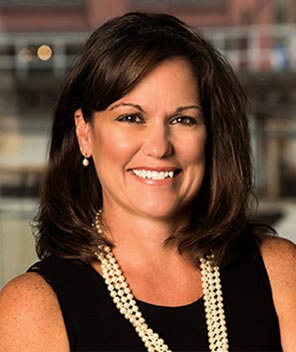
Divorce rates for couples over 50 have doubled since the 1990s, and for those 65 and older, the rate has tripled from 1990 to 2015. While couples may divorce for the same reasons at any age, the financial impact is often more severe for seniors due to the limited time to recover financially.
Understanding Reverse Mortgages for Divorcing Seniors
A reverse mortgage is a loan that allows homeowners aged 62 and older to access their home equity. To qualify, they must own the home outright or have a low remaining mortgage balance. The loan is repaid when the borrower no longer occupies the home as their primary residence, such as moving to assisted living or upon death.
Using Reverse Mortgages in Divorce Settlements
When a reverse mortgage is obtained, the initial proceeds pay off any mandatory obligations, including existing mortgages. Recently, the payout for the remaining proceeds is capped at 60% of the principal limit in the first year. If a reverse mortgage is used for an equity buy-out in a divorce, it must be specified as a mandatory obligation in the divorce settlement to ensure immediate payment.
Existing Reverse Mortgages in Divorce
Scenario 1: Both Spouses on the Reverse Mortgage If both spouses are on the reverse mortgage, one spouse can stay in the marital home without accelerating the mortgage note. The final settlement agreement can be submitted to the mortgage servicer to remove the vacating spouse from the title and mortgage. The vacating spouse can then use a new reverse mortgage to purchase another home.
Scenario 2: One Spouse Not on the Reverse Mortgage If the spouse retaining the home is not on the reverse mortgage, their options depend on their eligibility. There are two types of non-borrowing spouses: eligible and ineligible. If the non-borrowing spouse becomes eligible, they can obtain a new reverse mortgage in their name. Otherwise, the existing reverse mortgage must be refinanced or paid off for them to remain in the home.
Challenges and Considerations for Divorcing Seniors
Divorce can be particularly challenging for seniors due to financial constraints and housing concerns. Whether divorce is more socially acceptable or couples face unresolvable issues during retirement, housing remains a primary necessity.
The Value of a Certified Divorce Lending Professional (CDLP®)
A CDLP® provides crucial support in divorce mortgage planning, offering the following benefits:
- Expertise and Value: CDLP®s bring extensive experience and insights, bridging gaps in negotiations.
- Informed Decisions: CDLP®s help divorcing homeowners make well-informed decisions regarding home equity solutions.
- Practical Application: CDLP®s apply their knowledge to specific divorce situations, ensuring tailored solutions.
Incorporating Divorce Mortgage Planning in Settlements
Involving a CDLP® early in the divorce process facilitates collaborative problem-solving and leads to better outcomes. Divorce Mortgage Planning can help divorcing homeowners transition smoothly by exploring and evaluating strategic opportunities.
Take Action for Better Outcomes
Knowledge is a game changer. Incorporate Divorce Mortgage Planning into your divorce cases involving real property to help clients achieve their financial goals and secure their housing needs.
Contact a CDLP® Today
For expert advice and personalized solutions, work with a Certified Divorce Lending Professional. They can guide you through the complexities of divorce mortgage planning and ensure optimal decisions for your financial future.
Disclaimer
This information is for informational purposes only and is not intended as legal or tax advice. Please consult an attorney or tax professional for specific guidance. Interest rates and fees are estimates and subject to market changes. This is not a commitment to lend. Rates change daily—please call for current quotations.
This is for informational purposes only and not for the purpose of providing legal or tax advice. You should contact an attorney or tax professional to obtain legal and tax advice. Interest rates and fees are estimates provided for informational purposes only, and are subject to market changes. This is not a commitment to lend. Rates change daily - call for current quotations. The information contained in this newsletter has been prepared by, or purchased from, an independent third party and is distributed for consumer education purposes.
Copyright 2022 | Divorce Lending Association, LLC

